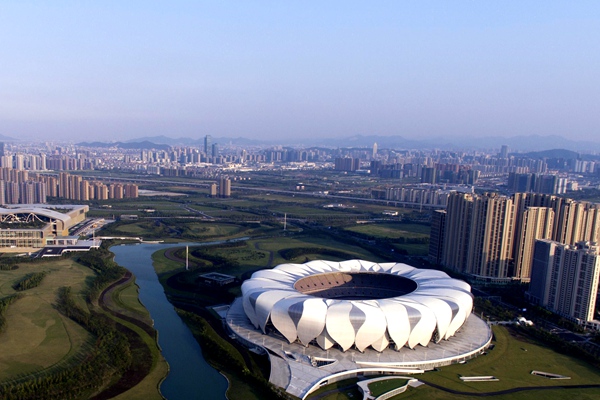By Yu Xiang, visiting scholar at Harvard University and director of American Economic Studies Department under the China Institute of Contemporary International relations.
The 2016 G20 Summit will be held in Hangzhou in eastern China's Zhejiang Province on September 4-5. Beijing has conducted major preparations to host the event.

Taking hold of "the economic mainline"
Amid the current complicated international situation, major powers have accelerated strategic adjustments to match a new round of interactions with each other.
Global challenges have gotten more urgent and interconnected, which include more fierce trade and territorial disputes, rampant terrorist attacks and extreme weather patterns.
Accordingly, Beijing has set the theme for this year's summit, "Towards an Innovative, Invigorated, Interconnected and Inclusive World Economy."
They are emphasizing the right keyword: ‘economy.’The global economy is the most important reason for the complicated, changing and adjusting nature of international relations.
The G20 intends to focus on the economy by promoting macro economic policy adjustments for member states to forge synergy that push global economic development.
This year's summit appears likely to contribute positive solutions for our world.
Hangzhou Summit offers hope for the world economy
The Peterson Institute for International Economics reported that G20 member states have engaged in selfish economic policies that have harmed global trade and investment.
According to the "report on world trade forecast" released by the London-based Center for Economic and Policy Research (CEPR), G20 member states have formulated more than 3500 protectionism policies since 2008, and 81 percent of them remain in effect.
When China was announced as host of the G20, Beijing promoted bilateral agreements to overcome protectionism.
China has led the group to endorse the "G20 Strategy on World Trade Growth," establish bilateral framework document of "G20 global investment guidelines," to fight against cross-border investment protectionism, and to create an open, non-discriminative, transparent and foreseeable investment policy environment.
Such measures can be viewed favorably for the TPP (Trans-Pacific Partnership Agreement) and RCEP (Regional Comprehensive Economic Partnership) trade deals. The former excludes China for now, while the latter excludes both China and the United States.
The "G20 global investment guidelines" provide reference points for cross-border investments in the two agreements.
Summit sets up supervision mechanism for global economy
Reaching a consensus at the summit has become a mere formality. Beijing has implemented measures for member states to conduct self-checks that add greater maneuverability to bring about material outcomes.
The measures do not serve as legal mandates, but can encourages member states to act more effectively and efficiently.
The G20 Chengdu Conference attended by Central Bank governors, along with treasury secretaries and financial ministers, had issued 49 guidelines in 9 fields for structural reform, which provides reference for member states to carry out reform.
They passed a dozen index systems covering labor productivity and employment rates.
To help the measures, each state will conduct an evaluation biennially. Assessment results can be written into the "G20 accountability assessment report."
China's organizing ability and leadership
Beijing has deployed mass human and material resources to ensure success of the Hangzhou summit, so "APEC blue" and "West Lake blue" can appear again.
The summit is another essential international event after the Commemoration of the 70th Anniversary of the Victory of the War of Resistance against Japan and the Anti-Fascist War held last year on Sept. 3 in Beijing.
Countries should hold large-scale international events. The G20 Hangzhou Summit is bound to leave a red-letter mark on the history of G20 development.
( The opinions expressed here do not necessarily reflect the opinions of Panview or CCTV.com. )

Panview offers an alternative angle on China and the rest of the world through the analyses and opinions of experts. We also welcome outside submissions, so feel free to send in your own editorials to "globalopinion@vip.cntv.cn" for consideration.















